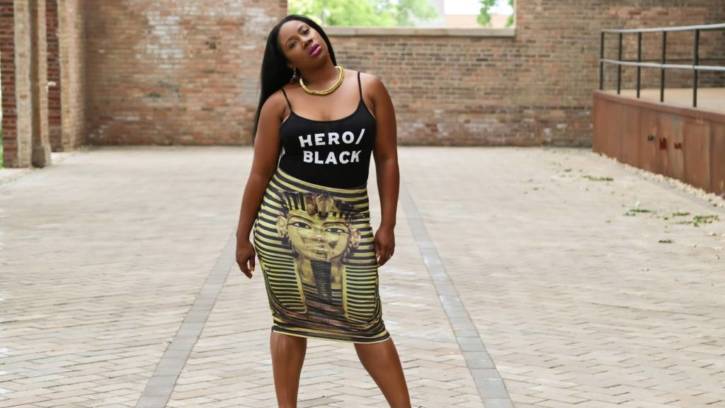
“Somebody/anybody/sing a black girl's song/bring her out/to know herself/to know you/but sing her rhythms/carin/struggle/hard times/sing her song of life" - Ntozake Shange, for colored girls who have considered suicide when the rainbow is enuf
That "somebody" is Tarrey Torae, a Grammy award-winning singer/songwriter who is very easily your favorite rapper's favorite singer, and her Black girl song of life is simply titled "Little Girl." Tarrey, whose Chicago-grown sultry vocals have graced tracks and stages with Kanye West, The Roots, John Legend, and Stevie Wonder to only name a few, offers this latest release as a musical and visual love letter to young girls. Using her own hard-learned lessons on life and love, Tarrey hopes "Little Girl" will empower young women to not make some of the same mistakes that women before them have made while growing up too fast.
The soul singer, who is currently on tour with The Ruler Slick Rick, spoke very candidly recently with BlackDoctor.org about the inspiration behind the song, and the journey of the 'little girl' who grew to be a self-assured Black woman.
BlackDoctor.org: I'm loving all the throwback stories you're sharing right now [on social media] of creating songs with Kanye, John Legend and others. Is there a special story behind creating "Little Girl"?
Tarrey Torae: The day that I created the song "Little Girl" I was vacuuming my living room rug and doing some housekeeping around a condo that we were living in at the time on the South Side of Chicago right next to Washington Park. I remember being in a super deep thought at the time, remembering my own childhood traumas and challenges as I was learning how to grow into a woman. The lyrics are a testimony and a shout of love to our little girls today. It’s my way or telling them that I love them. We love them and want to see them do well! It is my attempt to display the action of paying it forward. The lyrics in the song "Little Girl" reflect a symbolic ceremony for me of actually forgiving myself for some of the mistakes I made before I became more mature. The story of my life is drenched in life lessons, as it is for most of us.
WATCH: "LITTLE GIRL" BY TARREY TORAE
When I wrote this song, I was releasing something that I needed to push out and heal from. A great part of this story is that as I was writing the lyrics and singing to the top of my voice so as to hear myself over the vacuum cleaner, my husband, J. Ivy, emerged from his office in the back of our condo and asked what song I was singing. I replied, "My song!" and he said, “WHAT! You wrote that!? That’s original! I feel like Michael Jackson wrote that song!” He then says, “Wow, Babe, you are amazing! You should finish it and record that as soon as possible.”
He asked what inspired it, and I told him that it was my childhood and things I felt I had experienced for lack of simply knowing and lack of awareness. We sat and talked that afternoon and shared more childhood memories. We got closer and learned more about each other again. This song healed a part of me that needed healing.
BlackDoctor.org: Why is "Little Girl" needed for a time such as this?
Tarrey Torae: This song is extremely important to the times that we are living through now as a nation and as a world community. I wrote it with the hope that my words would move some people to do more for this generation and our little girls especially. It is a call to action and inspiration for women who will influence our next generation of women. We have to take this serious. We have to have a balance of examples both good and not so good so that our babies, little girls and young women can learn how to decipher and discern life decisions. I want them to have power in their thinking past what some parts of our society has delivered to them.
I was raised by a very old fashion family with tradition and deep moral values. I worry sometimes that it may be missing or getting too watered down. They are not getting it the from old fashion women that I knew and honestly they just might be getting it and just not listening as some young people do. I didn’t listen all of the time. It is a very human moment. It is also responsible for us to prepare them for the good times and the bad ones. They have to have tools and guidance. We can’t allow the Internet to raise our babies. And sometimes that is not the intention but it happens because we can’t watch them 24 hours and the digital world is very real in these days.
I wanted this song to touch the times we live in because I wanted to offer an option of view and an option of choice for them. I wanted them to see that it is ok to be a student of life but to keep love and joy in front of it all. Going down the wrong path is not the end of the world. I wanted them to see that even if they make a mistake they can recover with the right support. Even without saying it I wanted them to enjoy more of their lives and not make all of the mistakes by themselves.
It is a lesson of living vicariously through the adult women that surround them and learning the solution to the problem without having to go through it themselves. We need our little girls and young women to hear our voices in their head when they come to crossroads. We need them to feel covered even when they make mistakes.
BlackDoctor.org: In the verses you take on the role of the wise big sister or cool auntie. Can you also relate to being that "little girl," growing up too fast? What things did you struggle with?
Tarrey Torae: Yes, I love being the big sister figure in this time of my life. I feel like I’ve learned so much. I had to grow up in a way where I took direction from my elders but at the same time I had to learn from the streets. Part of it was survival; part of it was maturing. Part of it was lack of maturity and trying to fit in with my peers that I was surrounded by. Being Black, being a girl and being in Chicago on the South Side all played dynamics in my life!First, let’s deal with the fact that I was the only girl until I was 16 on my mom's side of the family out of all of my 48 first cousins. Then, I was the only girl in my home with three brothers. So, I was a little tomboyish with boy crushes and had no idea how to handle it all. It was a lifesaving moment at every turn because I was also the only Black girl in my catholic school classroom for 13 years.
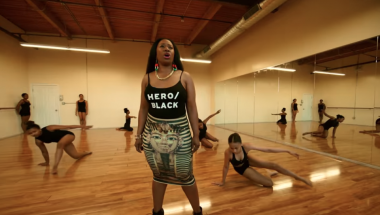 There was a street that divided my home from racism and extreme violence and I had to learn to live through it all. Then on my side of the street, I had to adjust to gang violence, prostitution, drug selling and sometimes murder right in front of my porch. It was a time when Black girls weren’t taught self-esteem. We were taught to survive, but not to love ourselves in the way I know now. Whatever street I was standing on I had to learn to survive. I fought, I cried and built relationships with people that were good and bad for me. The whole time as I grew up I had a group of women in my life that gave advice and instruction and set boundaries and rules for me, but still I made some bad decisions when they weren’t looking because of my humanness.
There was a street that divided my home from racism and extreme violence and I had to learn to live through it all. Then on my side of the street, I had to adjust to gang violence, prostitution, drug selling and sometimes murder right in front of my porch. It was a time when Black girls weren’t taught self-esteem. We were taught to survive, but not to love ourselves in the way I know now. Whatever street I was standing on I had to learn to survive. I fought, I cried and built relationships with people that were good and bad for me. The whole time as I grew up I had a group of women in my life that gave advice and instruction and set boundaries and rules for me, but still I made some bad decisions when they weren’t looking because of my humanness.
Little girls need constant guidance and constant love. Young women need reminders that they are the most important thing on earth to us. They should always feel covered and protected and when that is not present in their lives in a consistent way, I feel those are the moments that they make bad decisions. The song "Little Girl" was just specifically about that in total. I know it’s a lot, but I can relate to this with my whole soul. I can relate to the tough times I had trying to prove that I could make decisions for myself. I was independent before I needed to be. I was stubborn and a little sheltered and in the same breath I was fighting for my life. At home I was safe, but outside I was not safe.
If I compared my childhood experiences and tried to tell you the most significant moment, I’d fail because they were all the most significant. I struggled with decisions that I needed to make for myself when no one else was around. I think the biggest problem for me as a little girl and a young woman was the fact that it was a generation of people who didn’t discuss all parts of life with their children. We were told to be quiet and listen, but no one really listened to our concerns. Discipline was tough and rigid and the favorite phrase was, “children should be seen and not heard!” That was the one I heard the most. It applied to all aspects of life, including boys, friendship, love, sex, forgiveness, anger, education, career choices and sometimes happiness.
We were taught a strict form of respect and it definitely hampered the details in a child to adult communication exchange. It made life harder. The song “Little Girl” is meant to tell them that we are here for them and listening to them. They need us to listen more and give guidance.
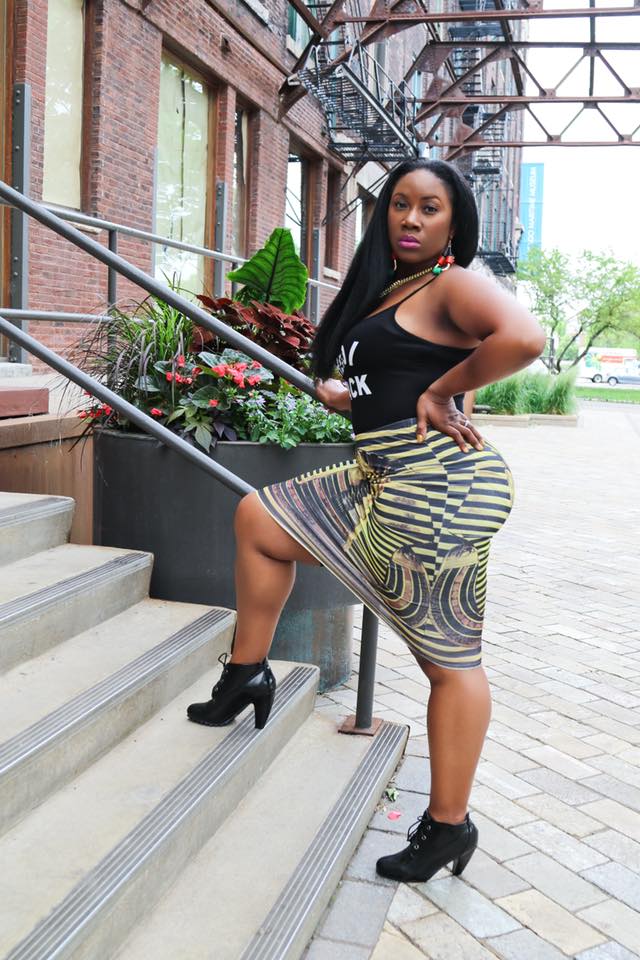 BlackDoctor.org: So many young Black girls are suffering silently with depression, various forms of abuse and assault, and lack of esteem. Do you see your music and work as mentorship or ministry?
BlackDoctor.org: So many young Black girls are suffering silently with depression, various forms of abuse and assault, and lack of esteem. Do you see your music and work as mentorship or ministry?
Tarrey Torae: I truly hope that it will help somebody. A long time ago someone asked me what I wanted my music to do and I said this: “I make music to match life not trend! I hope that my music will remind you of a moment, inspire action, change, promote hope, make you fall deep in love with someone or just yourself!
I hope that my music sparks passion in you and motivates you to be better, to be more and to dig further inside yourself discerningly to find the bigger purpose. I hope on some days it will make you dance and forget all of your problems and on other days I hope it will help you resolve something in your life so that you can grow beautifully. In all of this... I only hope that it makes a positive difference!”
I feel that the depression increases extremely when you are surrounded by nothing but negative things and people. It will get worse until we fix the way we see ourselves and allow others to portray us. We have to start fighting for our lives and livelihood differently. We have to make it easy for this next generation to love themselves.
BlackDoctor.org: As a Black woman heavily invested in and connected to Hip Hop culture, how do you handle the complicated relationship between Black women and Hip Hop?
Tarrey Torae: It’s a work in progress. I do believe we have planted some seeds to both ignite a greater moment and a greater exchange in Hip Hop for women. However, I’ll be the first to admit that it is not perfect. I believe that our Hip Hop culture is the perfect temperature gauge for our community and society in whole. I think it shows us how we really feel about ourselves. It is a perfect way to understand how we look at each other and sometimes it is really just bad timing. When I say bad timing, I mean the match of the subject matter and the music creators in this chapter of music versus what we need. Sometimes the storyline may be true but is no good for our healing. Being honest about that is sometimes not easy, as you don’t want to hate on another’s art.
Musically, I believe Hip Hop has both honored and torn down women. I remember a time when all of the women that I knew began to pull away from Hip Hop, including me, because we didn’t feel respected. Dare I say that we were underrepresented in some cases and misrepresented in other cases. I handle the culture of Hip Hop with respect and an active example of how I want to be treated. I am surrounded by a lot of great Hip Hop icons and legends, and I take the time to have conversations with them so that we can nurture better energy and mutual respect. I handle myself with detailed care in an attempt to teach people how to treat me as a woman in this industry. It's by the example I show. How I treat me is how I teach you to treat me, so we must be careful. It is not hard, because the music I choose to be surrounded by and that I absorb and sing to both on and off stage is very on purpose.
I choose to listen to what feeds my spirit good things. But there are times that I take in all of the new sound in Hip Hop so that I am not separated from the thermometer of the new kids on the block. I love most of it, but some of it I can live without. I remind myself that they have their own story, too, and music is supposed to be our therapy. We tell our stories in it so that we can heal. This is what they are doing, too. Old Hip Hop and new Hip Hop in my life are being held to the same standards. The question will always be, Does it feed me what I need at this time? Is it Good!? 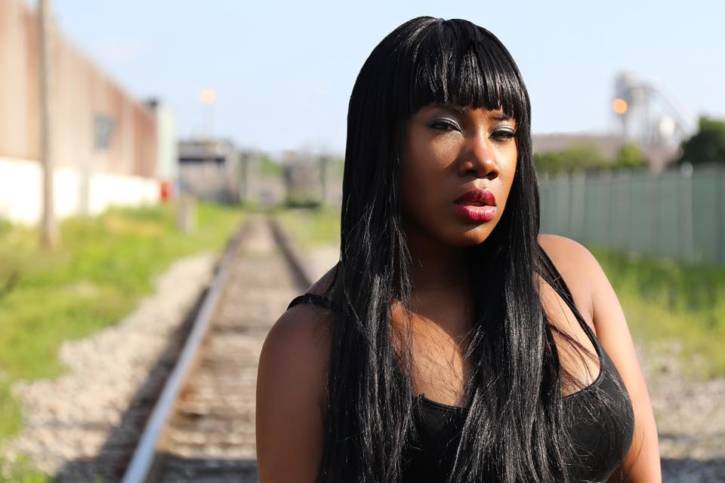 When the beat takes over, I try and be conscious of what I am letting into my musical spirit. Indeed, I do the best that can, but I do think we still have so far to go. Sometimes, the respect factor and the complicated history women have in Hip Hop is our own fault, too. If we can create life and raise it, surely we can help to shape what is acceptable in music when it comes to more positive inclusion and respect. We have to demand a higher standard of behavior from ourselves in order to teach. If we only over sexualize our presentation in Hip Hop we are teaching and telling Hip Hop that this is ok and what we want to be treated like. Self respect is very important for the entire culture. We are all each other's reflections!
When the beat takes over, I try and be conscious of what I am letting into my musical spirit. Indeed, I do the best that can, but I do think we still have so far to go. Sometimes, the respect factor and the complicated history women have in Hip Hop is our own fault, too. If we can create life and raise it, surely we can help to shape what is acceptable in music when it comes to more positive inclusion and respect. We have to demand a higher standard of behavior from ourselves in order to teach. If we only over sexualize our presentation in Hip Hop we are teaching and telling Hip Hop that this is ok and what we want to be treated like. Self respect is very important for the entire culture. We are all each other's reflections!
BlackDoctor.org: What do you want your music to communicate about Black girls and women? About you as an artist?
Tarrey Torae: I want this music to become a power source that people can plug into. I write about a lot of different things because I am created with layers by the Almighty. When I speak to Black girls and women, I want them to feel powerful and covered. I want to give them a soundtrack and a sounding wall. I want them to feel well represented! I am trying to give them another voice so that they know that we are listening and connecting to their needs. They have so much that deserves a bright light and I hope to be a bulb for them. I want to communicate a sense of pride, beauty and growth to them and for them. I want them to dream bigger after they listen to my songs!
BlackDoctor.org: What does self care and self love look like for Tarrey Torae now?
Tarrey Torae: Self care and self love for Tarrey Torae is to keep moving toward my goals. It is to take the time to always try to become a better version of myself. It is to be more than I ever thought I could be and when I arrive to a certain place, to push the bar even higher.
Self care is when I take a yoga class or go to work out. It is when I take an inventory of my life and remove all of the things that aren’t good for me as much as possible. It is saying that I apologize when I am wrong and work to fix something that I may have broken. It is going to a workshop or listening to my favorite singer or motivational speaker. At times, it is volunteering with a local organization and speaking to the youth. I’ve learned that we can grow taller in a sense of the word after letting the youth teach us something, too. It is getting some sleep.
It is sometimes looking for the next waterfall in a forest or a beach with warm sand. Sometimes it is traveling to a new country to see something new or just going to a great comedy show and laughing until tears are coming down my face. It is spending great times with the family and with friends and just sitting to read a good book again. Sometimes it's Netflix and Chill, gracefully speaking.
Self Love is all of the above and some things that are too much to name here. But overall my goal is to continue looking for the better parts of myself and challenging myself to more of that. Self care and self love is my singing and song writing because music is my therapy and, yes, we all need therapy! We all need music! I need it. It is seeking love in all situations in particular music, family and community. Simply put, give me a radio, a record, some great music period, some good speakers and time to absorb, and all I can do is smile!
Follow the life adventures of this soul singer on Instagram and download "Little Girl" on her album Sweetest Survivor here.
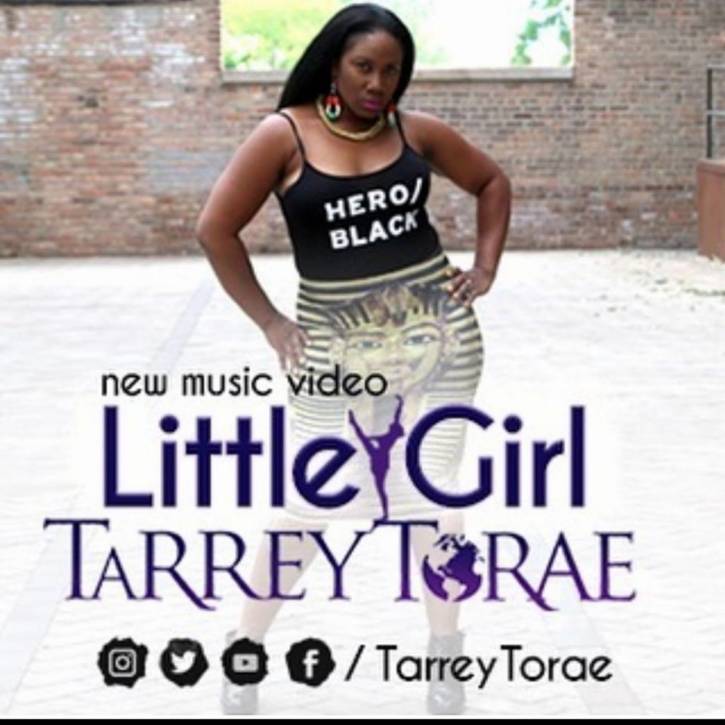
 Sandria M. Washington is the Chief Experience Officer over at SheFieldTrips.com. She will travel for concerts and food, and her favorite dance is the body roll. Follow her on IG @SoDopeSandria.
Sandria M. Washington is the Chief Experience Officer over at SheFieldTrips.com. She will travel for concerts and food, and her favorite dance is the body roll. Follow her on IG @SoDopeSandria.









